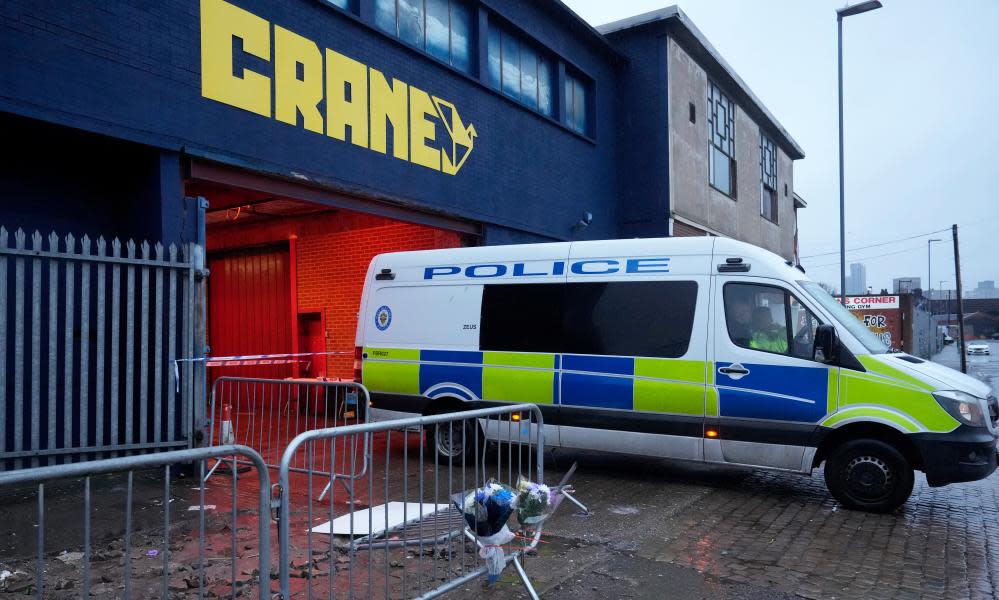Birmingham club loses licence after fatal Boxing Day stabbing

A Birmingham nightclub where a footballer was stabbed to death on Boxing Day has had its licence permanently revoked.
Cody Fisher, 23, died after being stabbed during a fight at an event at Crane nightclub in Digbeth.
On Tuesday, a Birmingham city council licensing committee revoked the club’s licence permanently and continued the existing suspension, first handed down on 30 December, meaning the club cannot reopen while any appeal against the decision by its operator is considered.

The club’s license holder is Damian Eston, director of Digital Arts Media Ltd, who has been involved in organising large events in the Birmingham nightlife industry for a number of years.
At Tuesday’s hearing, West Midlands police called on councillors to revoke the club’s licence, saying the venue posed a “grave risk” to public safety.
Gary Grant, a barrister representing the force, said there was an “inadequate search regime” at the club, and “blatant and widespread” use of drugs.
Video footage from the night of Fisher’s death, shared widely on social media, showed someone inhaling from a balloon believed to contain nitrous oxide just yards from police and paramedics.
Grant said during the Boxing Day event three clubgoers had to be carried out of the venue because of drug use, including a woman who was described as “dribbling out of her mouth, barely breathing” before she was taken to hospital in an ambulance.
“Management and security showed a reckless blind eye or simply didn’t care what was going on in their venue,” Grant said.
The club began operating on 15 October after being granted a licence in June, the hearing was told.
Evidence submitted to the licensing committee stated Eston had contracted a private ambulance service, RTC Medical Solutions, to provide medical support to the venue, but the company had stopped working for the club in early December due to his refusal to increase the level of cover.
The company recommended four first responders and an ambulance for the club’s opening event but Eston instead chose to hire just two first responders, the submission from licensing enforcement officer, Shaid Ali, said.
“The level of medical cover in their opinion was unsafe for them to continue,” said Ali.
Police officers who attended the incident on Boxing Day described “a scene of chaos and evidence of drug use”, and were asked to help with crowd control by staff.
One sergeant said staff seemed “oblivious to what was happening” and started trying to clean up the dancefloor, despite it being an active crime scene.
“There were hundreds of small drugs bags and nitrous oxide cannisters all over the dancefloor,” the officer said.
An environmental protection officer from the council said they had been in contact with the club numerous times over issues relating to “public safety and public nuisance”.
Some opposed closing the club, including the Conservative city councillor and former nightclub promoter Simon Morrall, who said closing the venue would “send a message to criminals that they can get away with this”.
“These instances will simply happen elsewhere,” he said, calling on the council to instead work with the club to erect metal detectors at the entrance of the venue, as well as in other clubs in the city.
“Our night-time economy in Birmingham is a fraction of what it was 10 years ago … we don’t solve problems by applying a sledgehammer, we must work with venues to ensure lessons are learnt and strong conditions are met.”

 Yahoo News
Yahoo News 
